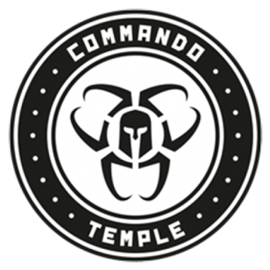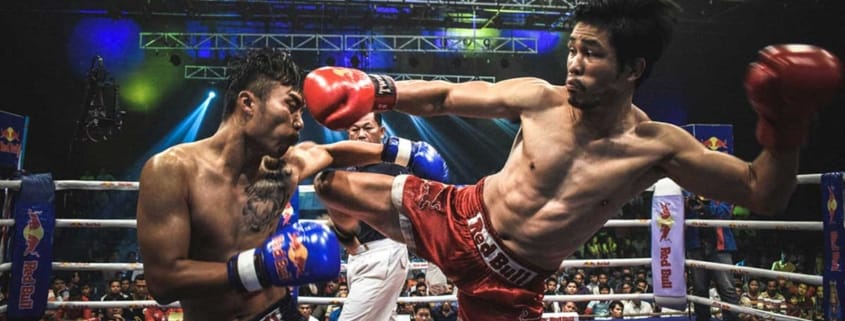Thai Phrases for Muay Thai Practitioners
If you’ve ever taken Muay Thai classes — especially in Thailand — you’ll know that it’s about much more than technique and conditioning. It’s a cultural experience. One of the best ways to show respect for that culture is by learning some basic Thai.
You don’t need to be fluent. In fact, just a few well-pronounced words can show your trainers, sparring partners and the Thai people that you’re serious — and that you’re here to learn, not just punch pads. Whether you’re heading to a gym in Bangkok or training in your hometown, these are the essential Thai phrases for Muay Thai that every nak muay should know.
Common Greetings in Thai
Respect is everything in Thai culture, and that starts with how you say hello. Use these phrases to greet trainers and other fighters respectfully — and to build connection, even if you’re new.
| English | Thai | Pronunciation |
|---|---|---|
| Hello | สวัสดีครับ/ค่ะ | Sawasdee krap/ka (men use krap, women use ka) |
| Thank you | ขอบคุณครับ/ค่ะ | Khob khun krap/ka |
| How are you? | สบายดีไหม | Sabai dee mai? |
| Yes / No | ใช่ / ไม่ใช่ | Chai / Mai chai |
| No worries / It’s okay | ไม่เป็นไร | Mai pen rai |
Tip: Even if your pronunciation isn’t perfect, making the effort goes a long way. Thai people will usually smile and help you say it better.
Muay Thai Vocabulary for the Gym
You’ll hear these words every session — especially if you’re training in a Thai gym. Trainers will shout them during pad rounds or use them while correcting technique.
| Technique | Thai | Pronunciation |
|---|---|---|
| Punch | ชก | Chok |
| Kick | เตะ | Teh |
| Knee | เข่า | Khao |
| Elbow | ศอก | Sok |
| Teep / Front Kick | ถีบ | Teep |
| Stop | หยุด | Yut |
| Block | ป้องกัน | Bpong-gan |
You’ll also hear these key words around the gym:
Kru (ครู) – Your coach or teacher. This title carries a lot of weight in Thailand.
Wai Kru (ไหว้ครู) – The traditional ceremony to show respect to your Kru, usually performed before fights.
Ram Muay (รำมวย) – The dance that forms part of Wai Kru — a ritual, not just a warm-up.
Counting in Thai (1 to 10)
Knowing your numbers is especially useful when doing reps or rounds. Trainers will often count out exercises or pad drills in Thai — learning this helps you keep up.
Counting to 10
1 Neung
2 Song
3 Sam
4 See
5 Haa
6 Hok
7 Jet
8 Bpaet
9 Gao
10 Sip
The Wai – A Gesture of Respect
In Thailand, showing respect is a part of everyday life — and nowhere is that more important than in a Muay Thai gym. The Wai is a traditional greeting that involves placing your palms together in front of your face and giving a small bow. It’s used when greeting your trainer, saying thank you, or showing respect at the end of a session.
In the ring, the Wai becomes something deeper — a sign of gratitude, tradition, and humility.
Pro tip: Watch how the Thais do it and follow their lead. It’s not just a formality — it’s part of the art.
Useful Everyday Thai Phrases for Muay Thai Fighters
Planning to train in Thailand? These basic phrases will come in handy outside the ring, too:
Add 3/4 Content here
Add 1/4 Content here
| English | Thai | Pronunciation |
|---|---|---|
| Water | น้ำ | Nam |
| Toilet | ห้องน้ำ | Hong nam |
| Where are you going? | ไปไหน | Pai nai? |
| I don’t understand | ฉันไม่เข้าใจ | Chan mai kao jai |
| Very delicious! | อร่อยมาก | Aroi mak! |
Final Thoughts from Mariusz
 After years of training in Thailand, I still don’t speak perfect Thai — but I’ve learned that even a few words can open doors. From earning the respect of your trainer to building friendships in the gym, language matters.
After years of training in Thailand, I still don’t speak perfect Thai — but I’ve learned that even a few words can open doors. From earning the respect of your trainer to building friendships in the gym, language matters.
It’s not about being fluent. It’s about being respectful. About showing that you’re here to grow, not just fight.
So next time you hit the pads in Thailand — or even at home with a Thai trainer — try greeting them with a proper “Sawasdee krap.” You’ll be amazed what that can lead to.
Ready to Train with More Purpose?
Here at Commando Temple, you´ll learn what it’s really like to train in the birthplace of the sport. Whether you’re just starting out or chasing a title, respect is where it all begins.


